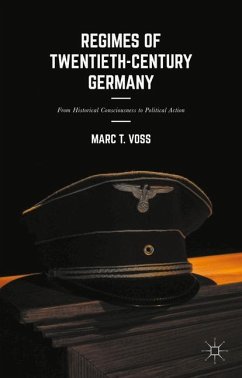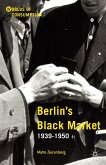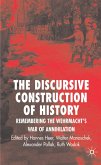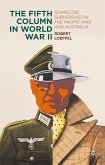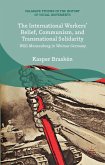Regimes of Twentieth-Century Germany studies how history didactics can contribute to preserving freedom and peace by incorporating an action component into historical consciousness research and by broadening its charter along age target group related, interdisciplinary, and international dimensions. This is investigated both on a conceptual and an empirical basis with specific focus on the two dictatorships of twentieth-century Germany. Specifically, there are three objectives: Further the conceptual development of historical consciousness research by incorporating an action component labeled action consciousness; empirically research knowledge, attitudes, and action consciousness of adults as well as the forms of historical cultural socialization both with respect to the NS and the SED dictatorships; derive recommendations for the further development of history didactics. Based on a discussion of the chosen research methodology, a review of the results of the empirical study is presented.
"The strength of Voss' study lies in his integrative approach. Not only does he advance previous concepts of historical construction but he also develops a new paradigm that he then supports through empirical analysis. This is a thought provoking read for those interested in history didactics and interdisciplinary historical research." - Dr. Lemuel Edward Day, Department of Sociology, Chapman University, USA

